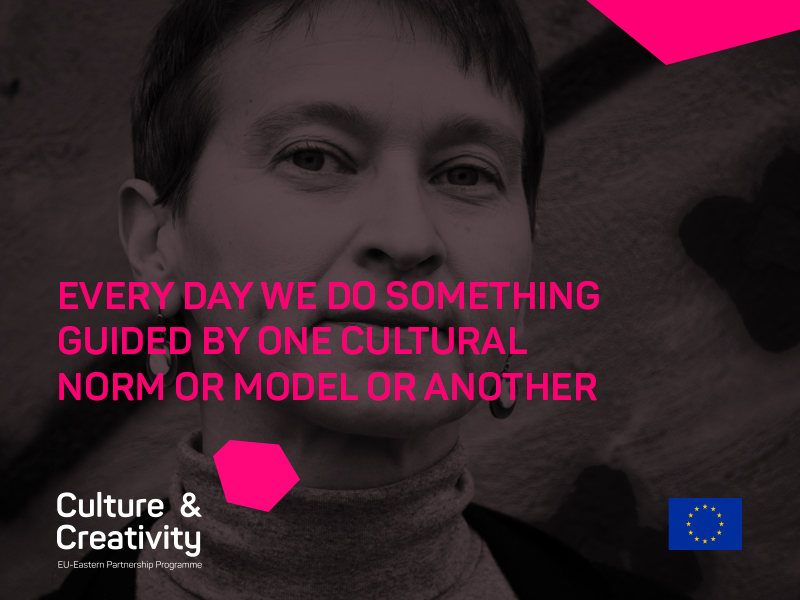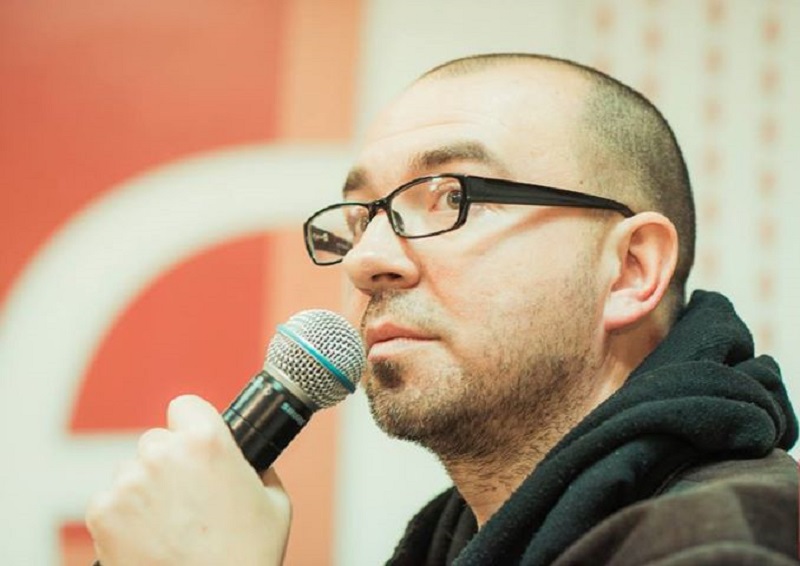
Tatiana Poshevalova: “Culture is not just folklore”
The most important thing now is to change the perceptions of the public as well as professionals of what “Belarusian culture” is and extending these perceptions. For example, bridging the gap between so-called “official” and “alternative” cultures. How can it be overcome? By understanding that all culture in its various manifestations is our common heritage. There is no such understanding for now – each is running his own small segment.
If culture is to be understood as not only a set of art genres but also production culture, consumer culture, political culture, it can be stated that culture is our life. Every day we do something guided by one cultural norm or model or another. It is precisely in culture that concepts can be found of what is “good” and “bad”, the models for society’s heroes and antiheroes. These models are maintained, transmitted, and sometimes replaced with others, including by way of education and art. That is why the role of culture in society is the foundation (the same can’t be said of the attention accorded to it in the system of social priorities).
Comprehensive and global programmes such as Culture and Creativity assist public discussion of the state of the cultural sphere and cultural policy. It encourages the inclusion of different subjects into the discussion – those who produce creative products, those who order and buy them, those who write about them, who set the rules of the game, who research culture, etc. Besides, global programmes help achieve this in each individual country as well as at regional and international levels.

In the near future it is important to influence the following aspects of the cultural life of the Eastern Partnership countries, and Belarus in particular:
- Creation of a network of regional contacts in the region of the Eastern Partnership countries and with neighbouring EU-member countries. So far, contacts in the cultural field are not regular – they can’t be called systematic collaborations.
- Need for collaborative and comparative research. For this goal, expert companies working in research in the field of culture should develop and adopt a common data collection and analysis system. This is indispensable for the comparison of data across various countries. To this day, all countries in the region are still using a Soviet system for data collection that does not agree with the European one. This is a common problem.
- Qualitative change and increase in our knowledge about the sphere of culture, about opportunities and threats. By “threats” I mean, for example, challenges relating to tolerance and acceptance of other cultures, problems of contemporary identity. Conflicts are getting worse. How to live and work with this?
- Raising the importance of the cultural sphere and its status. Understanding the importance of the cultural sphere is for any society a precondition for the proper functioning of the social organism. Better understanding of what culture is necessary everywhere, from the state policy sphere to social stereotypes. These stereotypes are very strong to date and one of their consequences is the residual principle of funding projects in the field of culture. Other consequences are out-dated ideas about labour standards, the relationship to many phenomena in society and life. All this depends on culture.
.png)
New conditions for the creative industry: 4 steps for Belarus
Step 1. Organise public dialogue. First of all, it is necessary for overcoming two of the most significant problems of cultural development in Belarus. The problems faced today are: the ideological bias of culture, in particular that of state programmes in this area; the powerful, uncontrollable expansion of Russian culture and, consequently, the marginalisation of Belarusian culture. In order to understand this, it is enough to simply switch on TV. There is no production chain that would enable the Belarusian cultural product to have a level playing field for demonstration and competition with the Russian one. There are no corresponding investments and opportunities to reach the audience.
Step 2. Engaging business and social associations (the private sector) in the process of training and skills development of personnel in the sphere of culture, development of innovative professions. Technologies are changing the concepts of traditional professions. For instance, in the field of cinema, production is moving in a new direction; technologies are changing the heart of the industry. The old professional school is no longer relevant. Another example is the customer who “places an order for a cultural product” for now this activity is not even perceived to be a profession. But if the order from a client is not well-versed, there can be no quality product.
Step 3. Promotion of contemporary concepts of culture. In particular, the extension of perceptions from narrow concepts about culture (for example, associating “culture and folklore”) with concepts of culture as a comprehensive set of norms and rules of human relations (labour culture, communication culture, political culture, etc.). It is also important to answer questions such as the image of which hero is reflected today in society? What norms of relations are proposed and are popular? What is right for men and women based on the songs broadcast on air? All of this also needs to be analysed and understood.
Step 4. Opening access to credit, grants and other financial sources. Creating demand for cultural products. For now our main customer is the state. Everybody counts on it. We have no free resources for artists to borrow. The country is not rich and the conditions for working in culture to be profitable are absent. This activity is not considered as important and promising. Belarus is for now not included in the creative and cultural processes in Europe at the level of ministries and other official structures, and that too is a problem.




